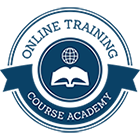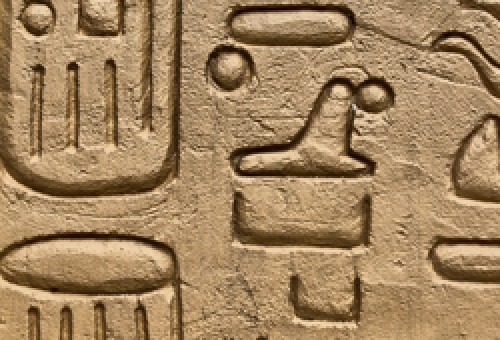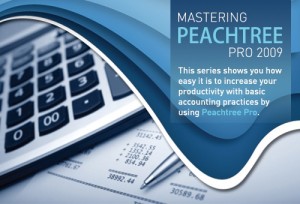A Level course in Philosophy pushes students to critically analyze the aspects which form the base of philosophy. A level course has fascinating subjects which helps students to develop several skills, which are transferable and can be used in the aspects concerning the day to day life.
Product Description
A Level course in Philosophy pushes students to critically analyze the aspects which form the base of philosophy. A level course has fascinating subjects which helps students to develop several skills, which are transferable and can be used in the aspects concerning the day to day life.
The first half of this full AS+A2 online course on philosophy is the AS philosophy. AS philosophy covers major concepts of philosophy, which enable students to perform well in A2 philosophy.
The second half of this courseware, on philosophy, covers the concepts of A2 Philosophy. Providing a solid base to the understanding of philosophy, this combined online course enables the students to indulge in several philosophical issues, which concern today’s generation.
Entry Requirements
Basic English reading and writing skills, as full tutor support is given.
Whats Included
Learning documentation, Online Resources and Tutor support for 2 years.
Course Study Format
Course will be delivered online.
Courseware Support
The biggest advantage of studying with us is that using your unique student account, you can immediately access the course materials online and submit all the question papers to the tutor online. On submission of question papers, you will immediately, receives the email containing the results and feedback.
Study Hours
Study hour is dependent upon the dedication and grasp towards the learning concepts mentioned in the course material. Furthermore, at the end of each lesson there is a question paper that needs to be completed and returned to the tutor.
Learning Hours
Approximately 300 hours.
Assessment Method
The Examination:
The course is examined in below components:
The AS / A2 Examination consists of four unseen written exams.
Unit 1: An Introduction to Philosophy 1 50% of the AS.
This is a written paper lasting 1 hour 30 minutes.
Candidates must answer the compulsory question on reason and experience and one other question.
Unit 2: An Introduction to Philosophy 250% of the AS.
This is a written paper, 1 hour 30 minutes.
Candidates must answer two questions.
Unit 3: Key Themes in Philosophy
This is a written paper lasting 2 hours.
Candidates must answer two questions from two different sections (i.e. on two themes).The exam is available in June only.
Unit 4: Philosophical Problems.
This is a written paper lasting 1 hour 30 minutes.
Candidates must choose one section and answer the compulsory question and one essay question. The exam is available in June only.
Exams would need to be carried out at an approved examination centre. Please contact us for assistance.
Exams
Exam vouchers supplied with our courses must be used within the duration of your course. Exam Vouchers become invalid once the course has expired.
Why Be Moral?
A natural way to see the role of morality in our lives is to view it as a constraint on the pursuit of self-interest. Were we to pursue our aims without any check on our conduct we would, it might be expected, do more bad deeds than we would were we controlled by moral rules and opinion. But, from the perspective of self-interest, how can we show that it is reasonable to conform to the expectations of morality? Why might it pay to be moral? Doesnt morality demand that I suppress my own inclinations and desires for the benefit of others and how can that be reasonable?
In this topic you will be introduced to three contrasting approaches which try to make sense of the relation between self-interest, practical reason and morality. The issues to be covered are:
1) Morality as a social contract According to this approach it is reasonable to conform to the expectations of morality because morality is a conventional agreement for our mutual advantage. But exactly what kind of agreement could it be? Can we articulate our self-interest independently of morality?
2) Morality as constitutive of self-interest According to this approach it is reasonable to conform to the expectations of morality because self-interest can only be realised in the context of a moral life. But are self-interested reasons compatible with an understanding of morality?
3) Morality as overcoming self-interest According to this approach it is reasonable to conform to the expectations of morality and these expectations disregard self-interest as morally relevant. But does eschewing self-interest leave us without any motivating reasons to act altruistically? Is moral motivation a reflection of natural dispositions?
The Idea of God
In this topic you will be introduced to three related discussions that centre around the idea of God. The issues to be covered are:
1) The divine attributes – God has been described as possessing omnipotence, omniscience and supreme goodness. He is said to be transcendent and immanent and His existence has no beginning or end, being either eternal or everlasting. What are we to understand by these attributes and how do they apply? Are these divine attributes singularly or mutually coherent?
2) The ontological argument This argument attempts to demonstrate a priori that if Gods existence is conceivable then God must exist Gods being is necessary. What are the strengths and weaknesses of ontological arguments for Gods existence.
3) The origins of God Here we consider the claim that the idea of God is innate within all of us and the difficulties surrounding that claim. We look at attempts to explain how the idea of God is merely a human construction and projection that emerges from mundane social or psychological processes.
Persons
The issues to be covered in this topic are:
1) What are the characteristics of personhood? – The characteristics associated with personhood, such as: rationality; being reflective about ones experiences, feelings and motives as well as those of others; possessing a network of beliefs; self-awareness and awareness of oneself as a continuing subject of experience.
2) What is a person? – The notion that not all humans are persons and, perhaps, that some non-humans are persons. To what extent do some non-human animals and some machines possess at least some characteristics associated with personhood and to a sufficient degree for personhood?
3) What secures our personal identity through time? – Whether either physical or psychological continuity through time are necessary or sufficient conditions of identity.
Reason and Experience
In this topic we consider the roles of sense and reason in our experience of the world. Is the source of everything we know about the world our senses, or do we know some things by reason alone? The issues we will cover are:
1) Mind as a tabula rasa We will look at the strengths and weaknesses of the view that all ideas are derived from sense experience. When we are born are our minds blank slates or do we come into the world with ready-made concepts of God and morality? We will also look at the strengths and weaknesses of the view that claims about what exists must be ultimately grounded in and justified by sense experience.
2) Innate knowledge We will look at the strengths and weaknesses of the view that the mind contains innate knowledge regarding the way the world is. Is certainty confined to introspection and the tautological?
3) Conceptual schemes We will look at the idea that experience is only intelligible as it is because it presents sensation through a predetermined conceptual scheme or framework.
Free Will and Determinism
In this topic we will discuss:
1) What is determinism? – Is all human action the inevitable result of environmental and hereditary factors? Is free will an illusion?
2) What is free will? – Does free will require a gap in universal causality? Does human decision-making occupy a special place outside of the natural order?
3) The implications of determinism If our actions are determined doesnt this undermine moral responsibility? To what extent can we praise, blame and punish if determinism is true?
God and the World
In this topic we will discuss:
1) The design argument for the existence of God The view that the order in nature can only be explained if there was a Divine creator.
2) The problem of evil – How could God allow moral and natural evil?
3) The religious point of view – Does religious belief reflect the feelings, attitudes, and commitments of the religious rather than facts about the world?
Knowledge of the External World
In this topic we explore in greater detail the Empiricist account of knowledge, the view that all our knowledge comes from experience. The issues we will cover are:
1) Realism – Do physical objects really have the properties we perceive in them?
2) Representative realism Are there good reasons to doubt the existence of the external world?
3) Idealism – Should physical objects be regarded as mere ideas?
Moral Philosophy
In this part of the course we consider whether there are universal moral truths or morality is culturally relative. Should moral decisions be made in terms of consequences alone, or should moral rights, duties and principles, which have intrinsic value independent of consequences be seen as more important? We will use moral theory to shed some light on contemporary ethical issues.
Political Philosophy
How should society be organised so as to best promote human welfare? Does justice require greater equality both nationally and globally? We will consider these and other questions related to the political and economic organisation of society.
Epistemology and Metaphysics
In this section we will look at the basis we have for believing that our senses are reliable. Our senses appear to inform us of an external world but can we be certain it exists? We also consider whether universals exist. White objects have a common property. They are all white. But does this mean that there is such a thing as whiteness? We will discover that it is not easy to be dismissive of this question.
Philosophy of Religion
On the AS we examined the argument for the existence of God that points to intelligent design. In this section of the A2 we evaluate the cosmological argument. Is big bang theory incompatible with the belief that God created the universe? We also look at the nature of religious belief and the relationship between faith and reason.
John Stuart Mill’s On Liberty
In the final part of the A2 there is an option to look in detail at an influential philosophical text. We will consider the book On Liberty by John Stuart Mill. This section facilitates an exploration of a range of philosophical problems. Mill is concerned in this book with the value of democracy and the extent to which it is right to put limits on personal freedom.
Job Prospects
Become fully trained and substantially improve the chances of employment or earn more money!
Qualification NVQ Level 3
Fully recognised UK Qualification. On completion of this course you will be awarded with a Diploma, which is an NVQ Level 3 qualification. It will be awarded by a UK accredited body.
Certificates
Upon completion of the course, you can download the completion certificate as well as any other qualifications you have been awarded.
A Level in Philosophy
Course Completion Certificate
*Please note, unless stated otherwise or included in package, our online courses only offer course completion certificates ( £10 fee) and in all cases official testing (at a charge made by testing centre) is required to gain officially certified recognised qualifications.
Award
On completion of this course you will earn an A Level in Philosophy.
Both AS and A2 level courses and examinations must be successfully completed to gain a full A level.
Specification: AQA. Full AS + A2 2170. AS 1171. A2 2171
Course Information
Please note that the registration to the On Campus student community and licence to print the study materials is included in the course fee. The licence is only for you print, therefore you have to ensure proper availability of cartridge and papers to print the full course materials, if required.
You need to have either of the following packages to access the On Campus area:
• Windows: Windows 98, 2000, XP, Vista, Windows 7 – Acrobat Reader 4.0 and above
• Macintosh: Mac OS X, Mac OS 9.2 – Acrobat Reader 4.0 and above
In the student ‘On Campus’ you can also be a take part of the student chat room and forums, as part of our online student community.
Once enrolled to the online programme, the username and password to access the On Campus area will be sent within 5 working days.
Students are required to arrange and pay for their examinations and manage the course work element, if the subject requires. Students must check the relevant examination board website for further information and final examination sitting dates for the specification.
Textbooks
This course is self-contained so you will not need to use any extra textbooks. However, you may find useful to read other books on this subject:
Jones, Gerald, Hayward Jeremy & Cardinal, Daniel (2008) AQA
An Introduction to Philosophy for AS Level, Hodder Education, London
Butler, Martin & Rawlinson, David (2008) AQA AS Philosophy: Student’s Book, Nelson Thornes, London
Lacewing, Michael (2008) AS Philosophy, Routledge, London
Lacewing, Michael (2009) Philosophy for A2: Key Themes in Philosophy, Routledge, London.
Lacewing, Michael (2009) Philosophy for A2: Philosophical Problems, Routledge, London.
John Stuart Mill (1859) On Liberty, Penguin Classics, this edition 1982. ISBN 0140432078.
You can also contact your tutor if you feel you need more practice in any of the areas covered in this course












